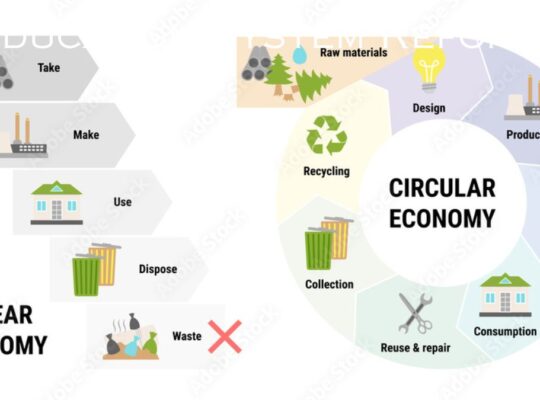In today’s ever-evolving business landscape, sustainability has transitioned from a mere buzzword to a strategic imperative. The call for eco-conscious practices has gained significant momentum, prompting businesses across various industries to reevaluate their environmental impact. As a management consultant with over two decades of experience working with entrepreneurs across a wide array of sectors, including Realty, SaaS, Telecom, Entertainment, Hospitality, Pharma, Retail, Media, Education, Recycling, Agro, I have witnessed the transformative power of sustainability in businesses. In this article, I aim to shed light on the compelling business case for sustainability and why it pays to be green.
The Evolution of Sustainability
Sustainability isn’t just about tree-hugging or altruism; it’s a pragmatic approach to securing long-term business success. Entrepreneurs in diverse industries are recognizing that adopting sustainable practices is not only beneficial for the environment but also for their bottom line. Sustainability initiatives encompass a broad spectrum of activities, including resource optimization, energy efficiency, waste reduction, and social responsibility, all of which can enhance a company’s competitiveness.
Reducing Operational Costs
One of the immediate benefits of sustainability is the reduction of operational costs. For instance, energy-efficient technologies and practices can significantly lower electricity bills and reduce water consumption. These savings go straight to the bottom line, leading to improved profitability. Entrepreneurs in industries like Realty and Hospitality can install green technologies in their properties to reduce energy consumption, while those in Retail can adopt eco-friendly packaging to cut down on waste and expenses.
Enhancing Brand Reputation
In today’s consumer-driven market, brand reputation is paramount. Companies that are committed to sustainability tend to enjoy a more positive image and better public relations. Customers are increasingly making purchase decisions based on a company’s environmental and social responsibility. This is particularly evident in industries like Retail, where eco-conscious consumers prefer products and services from businesses that align with their values.
Mitigating Regulatory Risks
Sustainability practices can also help businesses mitigate regulatory risks. As government regulations become more stringent in various sectors, entrepreneurs must adapt to remain compliant. Sustainability initiatives often align with these regulations, reducing the risk of fines and legal complications. This is especially relevant in industries such as Pharma, where strict environmental standards are a key focus.
Attracting Talent and Investors
Sustainability can be a powerful tool for attracting top talent and investors. In the competitive landscape of SaaS, Entertainment, and Media, businesses that prioritize sustainability are more likely to draw in skilled professionals who share their values. Furthermore, sustainable practices can enhance a company’s appeal to socially responsible investors, broadening the scope for funding and growth.
Long-term Viability
Sustainability isn’t just about short-term gains; it’s about securing long-term viability. Entrepreneurs in the Realty and Agro sectors understand the importance of sustainable land use and farming practices for ensuring the availability of resources in the future. Education institutions can also incorporate sustainability into their curriculum to prepare students for the challenges and opportunities of a changing world.
Measuring Sustainability Impact
To realize the full potential of sustainability, businesses need to measure and monitor their impact. Key performance indicators (KPIs) related to sustainability, such as carbon emissions, energy consumption, and waste reduction, can be tracked and used to set improvement targets. Data-driven decision-making is particularly crucial in Telecom, where sustainable practices can lead to more efficient network infrastructure.
In conclusion, the business case for sustainability is not only compelling but also a practical necessity in the modern corporate landscape. Entrepreneurs across various industries, from Realty to Recycling, are increasingly realizing that being green isn’t just about environmental responsibility; it’s a strategic imperative that can lead to reduced costs, enhanced brand reputation, regulatory compliance, and access to top talent and investors. By prioritizing sustainability, businesses can secure their long-term viability and contribute to a more sustainable future for all.
As a seasoned management consultant, I have witnessed firsthand the transformative power of sustainability in the businesses I’ve worked with. I encourage entrepreneurs in all sectors to embrace sustainability as a strategic advantage that not only benefits their bottom line but also contributes to a more sustainable and prosperous world.







